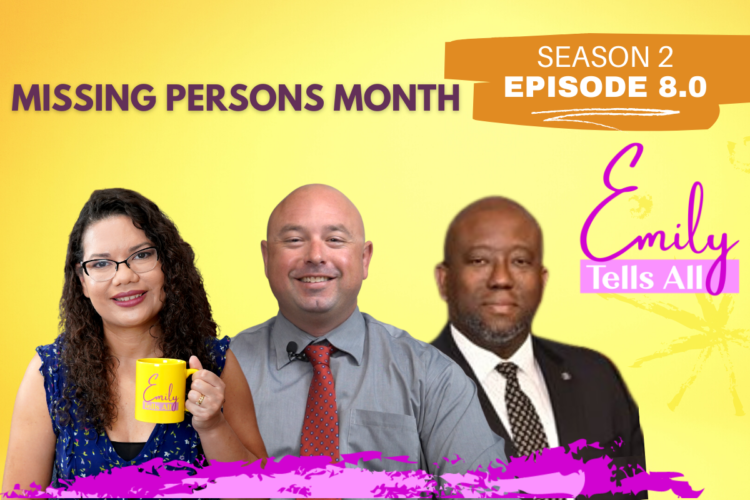AIR DATE FEBRUARY 24, 2022
Title: Missing Persons Month
Emily reveals what services are available in the central Florida area in the event of a missing loved one as well as preventive measures to take.
Guests and Locations
Orange County Sheriff’s Office, Investigator for Domestic Crimes Unit – Sgt. Benjamin Thorpe
Missing and Endangered Persons Information Clearinghouse, Assistant Special Agent in Charge – Chad Brown
Resources for Missing Persons in Central Florida
According to the National Missing and Unidentified Persons System, approximately 600,000 people go missing in the USA each year. Unfortunately, Florida ranks among the highest in terms of missing persons at 1,252 open cases.
Let’s uncover what services are available in the Central Florida Area in the event of a missing loved one and what steps we can take in our community to improve their chances of returning.
First, hear from Sergeant Ben Thorpe, who investigates missing person cases in the Domestic Crimes Unit of the Orange County Sheriff’s Office.
Then, hear from Chad Brown, Assistant Special Agent in Charge of the Missing Endangered Persons Information Clearinghouse of the Florida Department of Law Enforcement.
The Domestic Crime Squad in Orange County
“We investigate all domestic violence in Orange County,” Sergeant Ben Thorpe says, “We investigate all child abuse in Orange County, and we investigate all missing persons in Orange County too.”
Once the Sheriff’s Office receives a call about a missing person, a patrol deputy arrives on the scene to take information. They then fill out the affidavit for whoever reports the person missing. Then, depending on the circumstances, a detective may be called, and the person may be entered into the FDLE database as a missing person.
In that case, the investigating parties will need as much information as possible: social security number, birthday, demographics, where the person was last seen, what they were last wearing, list of mental illnesses or complications, a recent photo, etc.
“As soon as you recognize there’s a problem or that somebody’s gone missing, please call us right away, don’t delay, that is probably the most critical thing. Stay engaged with your detective or your investigator,” he advises.
Should families want to be proactive about the search and post on social media, Sergeant Ben Thorpe strongly requests that they do not share their personal contact information to avoid any events of extortion or scams.
Missing Endangered Persons Information Clearinghouse
“Clearinghouse itself is Florida’s central repository for information regarding missing children,” says Chad Brown. He continues, “We push out the alerts for missing children. We also basically continue to conduct backgrounds or look into persons that are long-term missing on a routine basis.”
Local law enforcement reaches out to Clearinghouse when a person goes missing in Florida. They will determine if issuing an alert is the best step. It could be anything from a missing child alert or an Amber alert if there is a kidnapping. For elderly Floridians, they have the silver alert as well.
While many people believe a person must be missing for 24 hours before reporting them, that is a myth. If you believe someone is missing, report it as soon as possible. Brown explains, “The sooner that information can get relayed to a local agency, the sooner they can then reach out to our personnel, and we can issue an alert for those instances.”
Stay informed about missing persons on the FDLE Facebook page and Twitter page.
Brown reports, “FDLE also has an app that you should be able to download from your app store. You can see our information there on missing children, but you can also see our information on our sex offenders that may be living in your neighborhood.”
Be mindful and contact your local authorities immediately if you feel a loved one may be in danger or missing.



